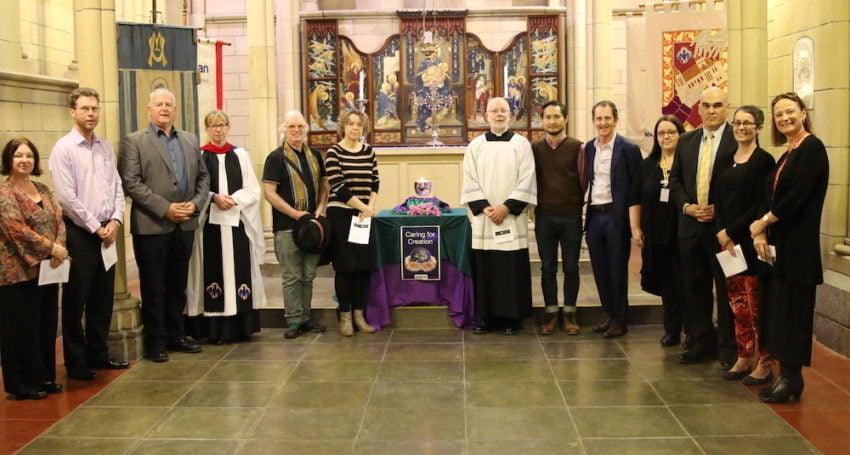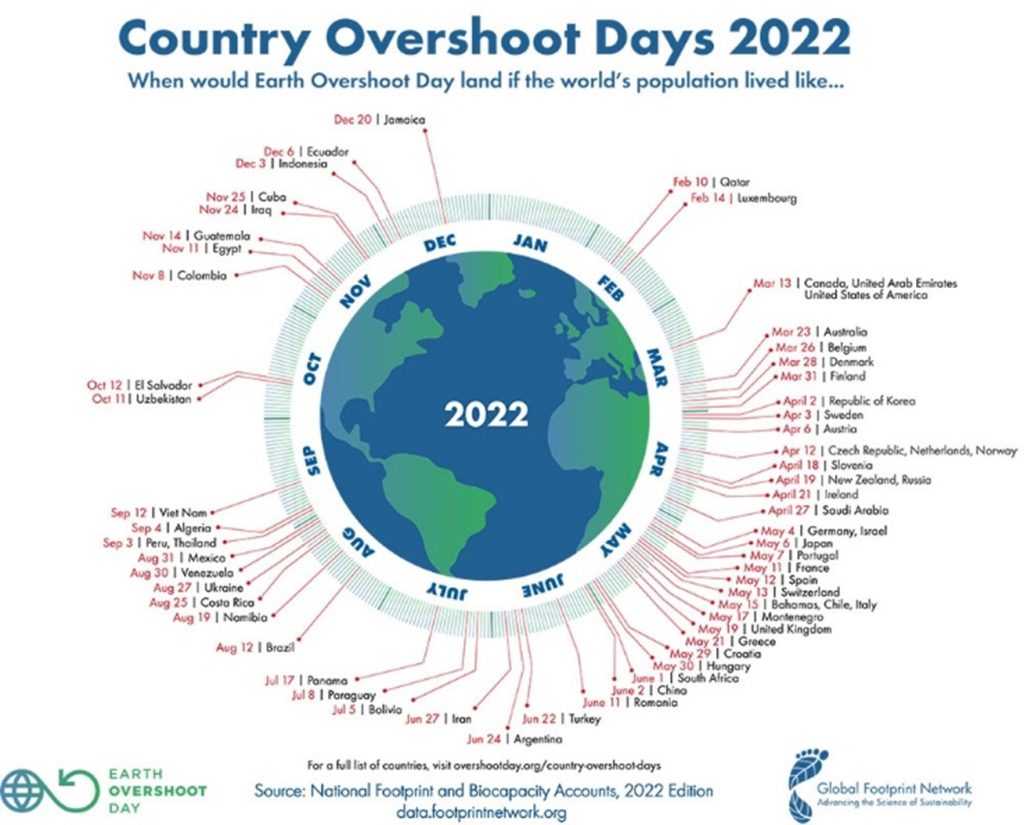What you can do to help on Australia's Overshoot Day
Features
“I, like most shoppers, have often experienced supply shortages on supermarket shelves during the last two years. Sometimes this shortage was caused by people taking much more than they needed…Our planet is also experiencing supply problems. Humans are taking more from the planet than it can reproduce,” says The Rev’d Peter Moore, Chair of Angligreen

I, like most shoppers, have often experienced supply shortages on supermarket shelves during the last two years. Sometimes this shortage was caused by people taking much more than they needed. At other times the cause was an unavoidable supply chain delay because surging COVID-19 cases temporarily impacted the number of workers able to produce and deliver items. Human action was much more of a direct influence in the first situation than in the second.
Advertisement
Our planet is also experiencing supply problems. Humans are taking more from the planet than it can reproduce, and often much more than they need. Studies have shown that on 30 December 1970 there was an almost even balance between what was taken and what the planet could produce. Since then there has been a widening gap between what is taken and what can be produced.
The gap between this demand and supply can be expressed by marking the date that demand exceeds what the planet can produce in a full year. This date is called “Earth Overshoot Day”. Last year the global Earth Overshoot Day was 29 July 2021. Different countries have different consumption rates, so a calculation is also made annually for each country.
What would the global Earth Overshoot Day be if the whole world had the consumption rate of Australia? The answer this year is 23 March 2022. How do we compare with other countries? This infographic illustrates our position in the world. It shows that we are one of the worst countries in the world.

Country Overshoot Days for 2022 (sourced from overshootday.org)
As Christians we believe in God the Creator of all things visible and invisible. However, humanity is damaging God’s good creation by taking and using more than can be regenerated. If the rest of the world had the same consumption as Australia, 4.5 Earths would be required to balance that consumption.
There is only one planet, so what changes can we make? We can reduce our personal impacts on the planet by consuming less, reducing waste, reusing and recycling items, and supporting clean energy industries. We can also influence the organisations we participate in to do the same. And, we can ask our leaders to protect Creation and take bold, meaningful action by 2030.
In the lead up to the Federal election this year, consider asking your local member and other candidates seeking your vote about their position on sustainability and clean energy. Think about casting your vote based on the responses you receive vis-a-vis what the experts are saying.
COVID-19 has taught us that if we follow the best evidence-based information available, while intentionally thinking about the impacts of our choices on others, that we get the best results.
What you can do on Australia’s Overshoot Day on Wednesday 23 March to help #MoveTheDate
- Toll your church bells or light a candle around midday symbolising the call for effective climate action plans.
- Pray for an “ecological conversion” of Australians, especially those elected to Parliament.
- Tell others in your online communities about this day, and why you are marking it, by sharing Overshoot Day posts on social media.
- Speak at your church on Sundays about Australia’s Overshoot Day.
- Act as people of faith by making a commitment to Live the Change.
- Organise your own Australian Overshoot Day vigil at your church, school or local MP’s office with the help of these liturgical and social media resources, sharing your event on Facebook.
- Join people of faith in a prayer vigil outside the electoral office of Trevor Evans MP, Member for Brisbane, at 349 Sandgate Rd, Albion at 10.30am on 23 March 2022, Australia’s Overshoot Day. For more information and to register, visit the Facebook event page.






